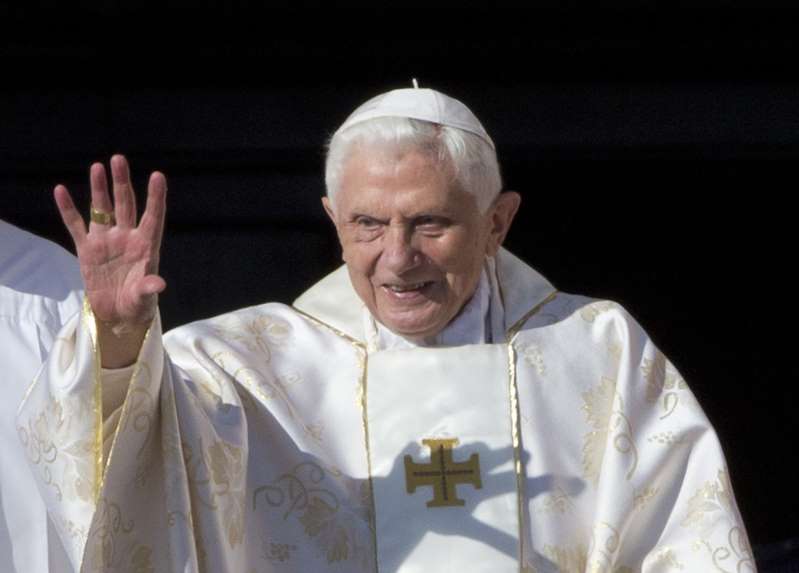Pope Emeritus Benedict XVI has written a lengthy letter devoted to clerical sex abuse in which he attributes the crisis to a breakdown of church and societal moral teaching and says he felt compelled to assist “in this difficult hour.”
The 6,000-word letter, written for a small German Catholic publication and published in translation by other outlets on Thursday, laments the secularization of the West, decries the 1960s sexual revolution and describes seminaries that became filled during that period with “homosexual cliques.”
The pope emeritus, in emphasizing the retreat of religious belief and firm church teaching, provides a markedly different explanation for the abuse crisis than that offered by Pope Francis, who has often said abuse results from the corrupted power of clergy.
“Why did pedophilia reach such proportions?” Benedict wrote, according to the Catholic News Agency, which published the full text in English. “Ultimately, the reason is the absence of God.”
Since abdicating the papacy six years ago, Benedict — living in a monastery inside the Vatican City walls — had remained nearly silent on issues facing the church, in part to yield full authority to his successor. But Benedict’s decision to speak out highlights the unprecedented and awkward position facing the ideologically divided Roman Catholic Church, which has — for the first time in six centuries — two potential authority figures who hold sometimes-differing views.
In his intervention, Benedict did not assess his own role in the crisis, during which he held power for decades, first behind the scenes and then for eight years as pontiff. But the letter bears his hallmark: in particular, a conviction that Catholic teaching can show the way out of a crisis.
“He speaks only a little about victims,” said Vito Mancuso, an author who has written books about Catholic theology and philosophy. “It’s almost an excuse for the one thing that he is truly interested in: the traditionalist restoration inside the church.”
Benedict’s personal secretary, Archbishop Georg Gänswein, confirmed the authenticity of the letter in an email. The Vatican, which was not involved in the publication of Benedict’s letter but later reported on it, did not respond for a request for comment.
In the letter, Benedict wrote that he contacted both Francis and the Vatican’s secretary of state before proceeding. The pope emeritus finished his essay by thanking Francis for his work to show “the light of God.”
In the letter, Benedict also took aim at some of the shortcomings of church law for handling abuse cases. He said church law traditionally favored the accused and its justice system was “overwhelmed” by cases in which a “genuine criminal process” was required to impose a maximum penalty.
Instead, Benedict concluded his letter by describing a way forward, calling on God to play a more central role in daily life.
“A paramount task, which must result from the moral upheavals of our time, is that we ourselves once again begin to live by God and unto Him,” Benedict wrote. “Above all, we ourselves must learn again to recognize God as the foundation of our life instead of leaving Him aside as a somehow ineffective phrase.”




